Who We Are
Welcome to the San Diego Ethnic Studies Oral History Editorial Collective (SDESOHEC). We are a collaborative network of educators (teachers, academics, and graduate students) seeking to build community and historically responsive Ethnic Studies in our region. Our work is grounded in developing locally-based curriculum, pedagogy, guidance, and professional development through the analysis and use of Ethnic Studies oral histories.
How We’re Different
Navigating our website may feel different than navigating other teacher-oriented websites. You may notice that the focus is on the process of curriculum-thinking rather than ready-made lesson segments. We believe that this process is a critically important element of being a community-responsive Ethnic Studies curriculum developer who engages oral histories. While our work is designed to provide models and tools that may be applicable across contexts, it is grounded in our local communities and that which is relevant to their lives and desired futures. We attempt to showcase the thinking necessary to engage our students with Ethnic Studies conceptual ideas and practices while steering away from a one-size-fits-all approach. Finally, we are not showcasing perfection but instead, the necessary and evolving process educators must go through in acting as agentive curriculum-makers.
-
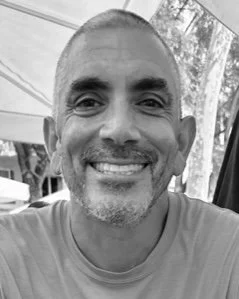
Luis Alvarez
Luis Alvarez received his B.A. in history from UC San Diego and Ph.D. in history from the University of Texas at Austin. His research and teaching interests include race, pop culture, and social movements in the history of Chicanas/os, Latinas/os, and the U.S.-Mexico borderlands. He is author of The Power of the Zoot: Youth Culture and Resistance during World War II (University of California Press, American Crossroads Series) and Chicanx Utopias: Pop Culture and the Politics of the Possible (University of Texas Press, Historia USA Series), as well as co-editor of Another University is Possible (University Readers Press). At UC San Diego, he has also served as Chair of the Department of History; Associate Dean for Academic Personnel and Equity, Diversity, and Inclusion in the School of Arts and Humanities; inaugural Director of the Institute of Arts and Humanities; Director of the Chicanx Latinx Studies Program; and lead coordinator of the Latinx Cluster Hire Initiative. He is also a core member of the Race and Oral History in San Diego Project, a collective of faculty, librarians, students, and community partners working together to create a community-based archive of the history of race, migration, militarism, and the border in San Diego. He is at work on a new book called Border Pitch: A History of the Mexico-U.S. Soccer Rivalry, which explores sport, diaspora, migration, and citizenship through the rivalry between El Tri and the US Men’s National Team. He is a supporter of FC Barcelona.
-
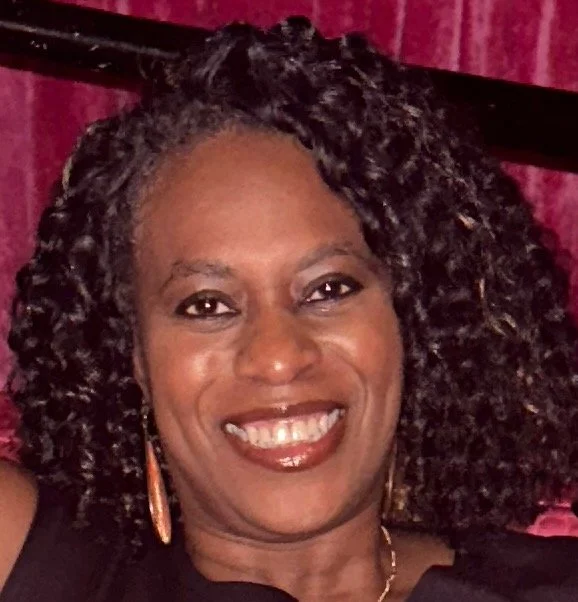
Sharon Apple
Hello Wonderful Educators of Amazing Humans!!! My name is Sharon Apple and I have been honored to teach in the San Diego Unified School District for 23 years. I started teaching students with disabilities in a self-contained classroom at Encanto Elementary. Then I was an Education Specialist at Clairemont HIgh School. Currently, I teach English and Ethnic Studies at Hoover High School. I am also an Ethnic Studies Lead Teacher in which I facilitate professional development for other educators. I joined this collective because I want to lift up oral traditions that have been passed down for generations. I want my students to see themselves in the oral histories and realize that their story is worth preserving and sharing with others.
-
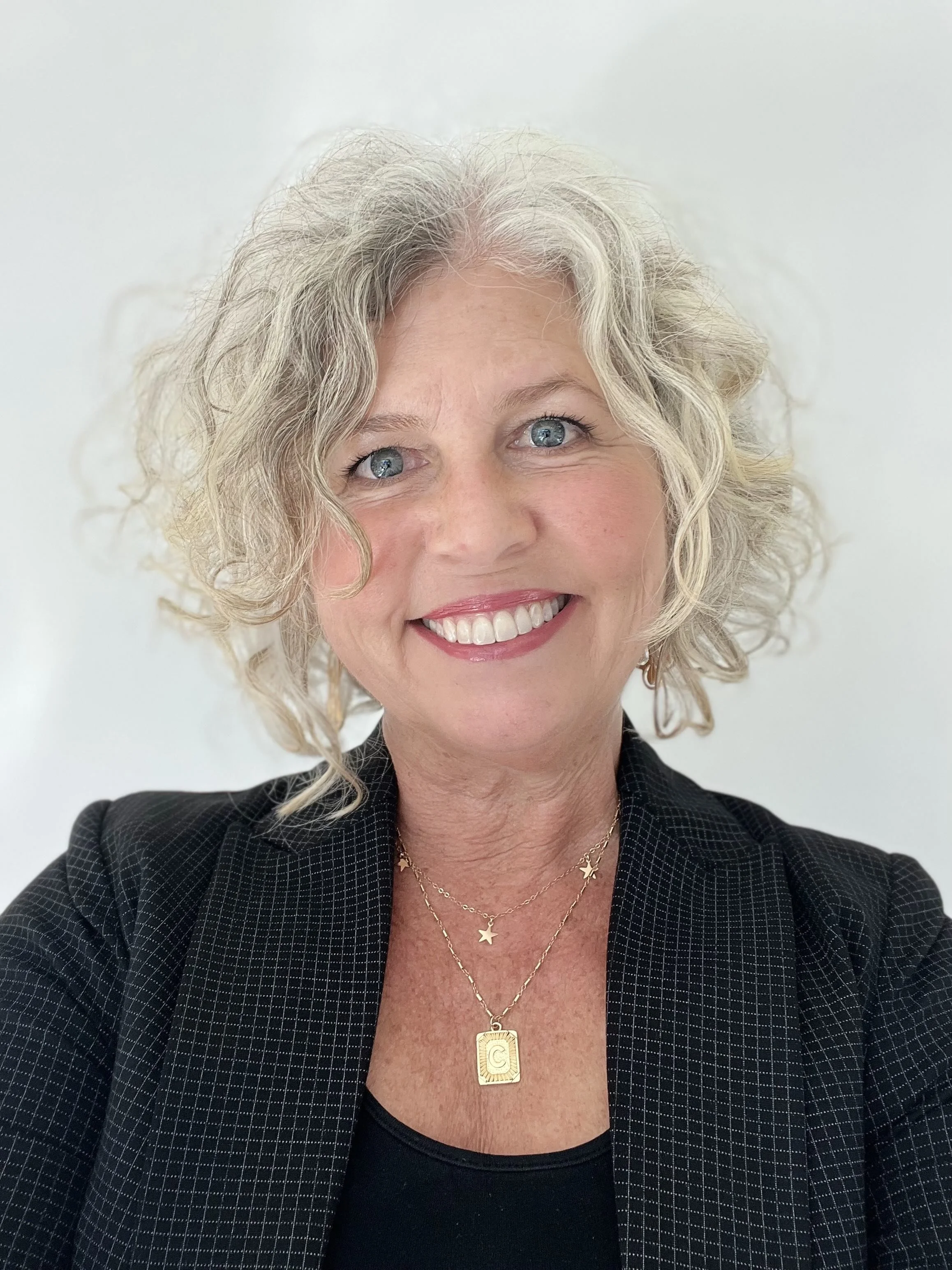
Carisa Barnes
My name is Carisa Barnes, and I have been an educator for over 20 years in San Diego, Santa Ana, and Bend, Oregon. I currently work with leaders and teachers in San Diego Unified, supporting literacy across content areas. As a result of the newly adopted Ethnic Studies graduation requirement, I have been seeking opportunities to learn how I might support teachers and students in deepening their understanding of their own identities through the Ethnic Studies lens. Joining the ESOHC has provided me with a community in which I can learn, grow, and gain awareness of the rich oral histories in our local community and the ways teachers might bring those stories into their classrooms. I have worked alongside passionate educators who are creatively and authentically bringing these stories into their classrooms and developing curricular resources to support teachers throughout the County of San Diego to do the same.
-
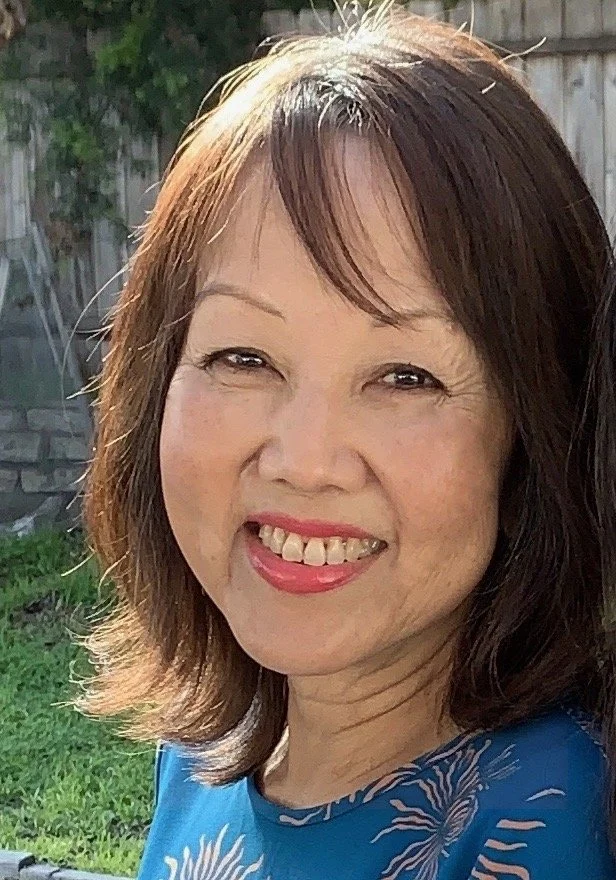
Yến Lê Espiritu
Originally from Việt Nam, Yến Lê Espiritu is Distinguished Professor of Ethnic Studies. An award-winning author, she has published extensively on Asian American panethnicity, gender and migration, and U.S. colonialism and wars in Asia. Her most recent book, Body Counts: The Vietnam War and Militarized Refuge(es) (UC Press, 2014) charts an interdisciplinary field of critical refugee studies, which reconceptualizes “the refugee” not as an object of rescue but as a site of social and political critiques. Espiritu has served several terms as Chair of the Ethnic Studies Department, and also as its Director of Undergraduate Studies and Director of Graduate Studies. She has also served as the President of the Association of Asian American Studies and Vice President of the Pacific Sociological Association. She is a Founding Member of the Critical Refugee Studies Collective whose aim is to integrate scholarly, policy, artistic, legal, diplomatic and international relations interests with refugees’ everyday experiences. Espiritu is the recipient of several UCSD teaching awards: the Eleanor Roosevelt College’s Outstanding Faculty Award; the Academic Senate Distinguished Teaching Award; and the Chancellor's Associates Faculty Excellence Awards for Excellence in Graduate Teaching; and the inaugural recipient of the Association for Asian American Studies Mentorship Award.
-

Kay Flewelling
I am proud to be a part of the Ethnic Studies Oral History Education Collective (ESOHEC), a group dedicated to bringing history to life through the power of people’s real lives. I have worked as an educator in varying capacities for the past 20 years and am currently an ethnic studies resource teacher in San Diego Unified School District. I am deeply committed to making history relevant and engaging for all students, particularly those whose stories are marginalized by Eurocentric approaches to this subject. History, to me, is more than just dates and events; it's about the narratives that shape our understanding of the world. ESOHEC has provided me with invaluable opportunities to learn from our local community and explore innovative approaches to teaching through oral history and ethnic studies. Through collaboration with like-minded educators, I've been inspired to create assignments that foster deep connections and empower students to explore their own heritage. Together, we strive to cultivate a learning environment where every student feels seen, heard, and valued.
-

Rob Holland
My name is Rob Holland and I am in my second year as a Social Studies teacher at Monte Vista High School in Spring Valley, CA. I joined the ESOHEC because I wanted to bring voices and stories into my classroom that students would resonate with. Many of my students grew up in households with storytelling traditions, yet stories are often not considered “knowledge” in traditional school settings. Via oral histories, I can reaffirm that stories are knowledge. Through my work in the ESOHEC, I have gained insight into many stories that I had been ignoring. This diverse and critical group of academics, graduate students, and teachers has helped me recognize my own biases and grow as a culturally responsive teacher.
-

Kelly León
My name is Kelly León, and I got involved in the Collective as a PhD student studying Education for Social Justice at the University of San Diego. I am a long-time History/Social Science educator in the South Bay of San Diego and have worked at SDSU in the School of Teacher education for almost a decade. I joined the ESOHEC because I was interested in thinking through what community-responsive, educationally significant Ethnic Studies could look like in our region. One of my big takeaways from almost 2 years of working with the Collective is that teaching with/through ES lenses and modes of inquiry requires a commitment to deepening our understanding of 1) Ethnic Studies scholarship, 2) the community histories and geographies of our local region, and 3) effective curriculum thinking and curriculum-making.
-
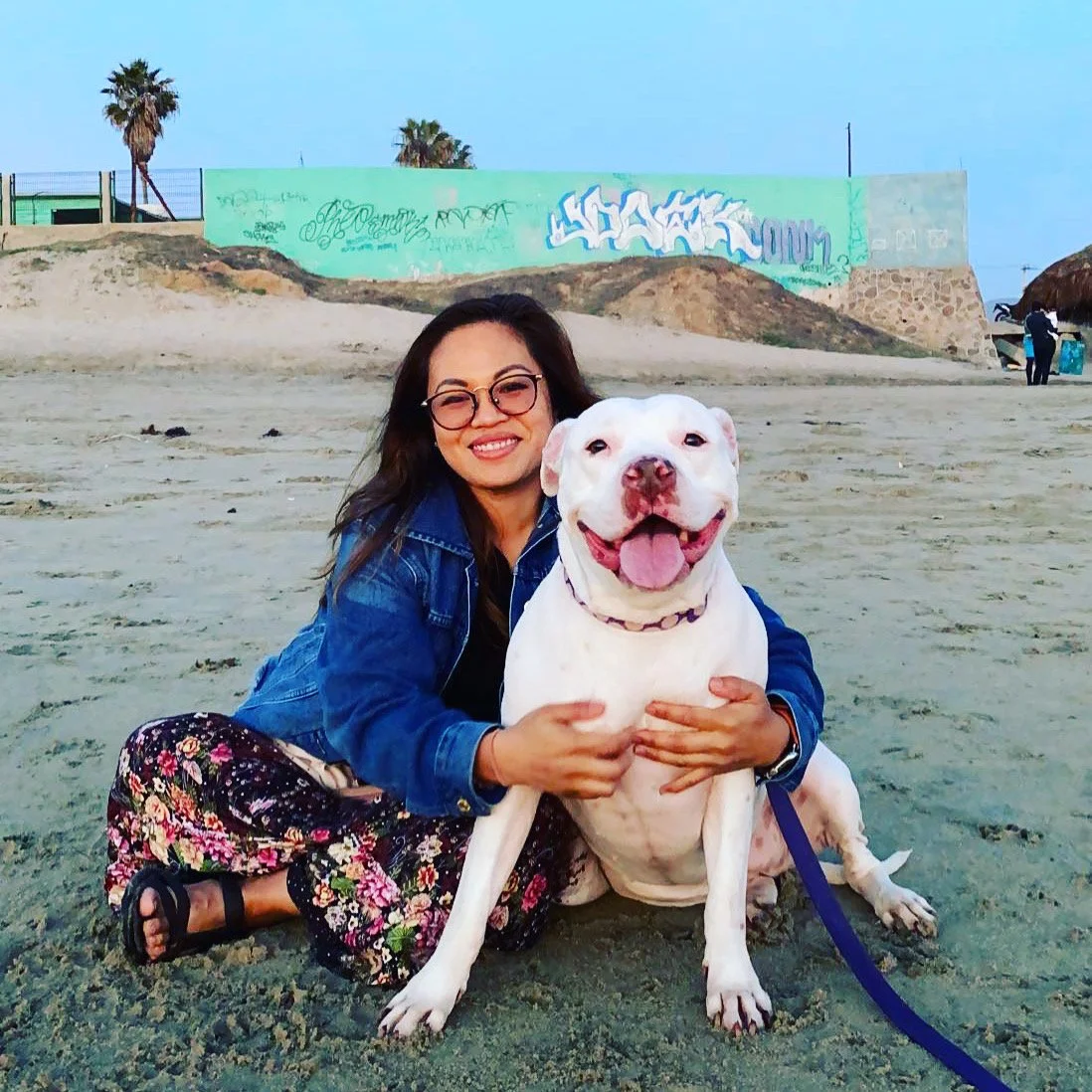
Sheree Lewis
My name is Sheree Lewis. I am a 10th-grade Project-Based Humanities teacher at HighTechHigh Chula Vista for a second year. I have been teaching for six years and love giving back to my community by teaching reading and writing literacy. I got into the Ethnic Studies Oral History Collective program because of my background and my BA in Ethnic Studies. Through this program, it has been a full circle for me to be able to work with my old college professor, Dr. Yen Le Espiritu. Seeing the development of Ethnic Studies at UCSD from the late 90s to now makes me feel proud that we are making necessary changes as educators to provide the kind of education where students see and hear themselves in the lessons. Oral History is where Ethnic Studies begins and continues to thrive and I am beyond proud of being a part of this collective.
-

Dr. Jesse Mills
Dr. Jesse Mills is Associate Professor of Ethnic Studies at the University of San Diego, and has lived and worked in City Heights, San Diego since 2002. He began training teachers in race and diversity in 2000, and innovated structural racism trainings since 2009. As a facilitator and trainer, Dr. Mills has worked throughout the state for The California Endowment's Building Healthy Communities, the City of Sacramento, Mid City Community Advocacy Network, Catalyst of San Diego and Imperial Counties, Open Places San Diego, Center on Policy Initiatives (San Diego), and more. Mills' professional work is rooted in his community work and volunteerism. In the City Heights Somali community, the primary site for his research, Mills has served as ESL teacher, youth mentor, educational consultant, organizational advisor, and community member. At USD he has served as department chair, core curriculum committee, assessment rep at the departmental and college levels, external program reviewer, and assessment researcher. His teaching and research focuses on Black Studies, Comparative Ethnic Studies, education, health, social movements and political consciousness.
-

Celina Rodriguez
My name is Celina Rodriguez, and I am in my fifth year at High Tech High Chula Vista, where I teach 11th-grade Humanities and co-advise our Ethnic Studies elective. As a child and into my adult years, my greatest joy was listening to the stories of my grandmother. When telling a story, she always had a twinkle in her eye and a joke on her lips. Switching between English, Spanish, and her distinct New Mexican slang, I was transported to her childhood in rural New Mexico, her migration to California, and beyond. Storytelling demands our presence and respect and rewards us with humor and knowledge. I joined the ESOHEC because I want to bring those voices and that joy into the classroom. I also believe that it is imperative that we capture the voices of those around us for the health and longevity of our communities. If we don’t tell our stories, someone else will, and they will get it wrong. Through my work in the ESOHEC, I have gained an incredible community of like-minded activists and academics seeking to empower our students and community through oral histories.
-

Shamar Todd
Helix Charter High School -Ethnic Studies Teacher (2 Years of teaching)
I joined the Ethnic Studies Oral History Collection to firmly establish a foundation for culture and humanity within my heart, which I believe is paramount in being an effective educator. The power of stories ignite change and reflect the hardships of both love and hate, narratives hold weight and bring reality to the many concepts discussed within an Ethnic Studies classroom. My life as a teacher, although brief, has allowed me to seek opportunities for personal growth. I'm in a groove of constantly learning and challenging the systems of oppression that have long been the anchors of communities seeking true liberation and peace. Ethnic studies is the future and something that will ignite the revolution of minds across our nation.
What you've learned as a member: Throughout my time in the program I have learned that everyone experiences the hardships of this world differently, one constant though is struggle. Navigating that struggle and rising above the many ailments of the world is best taught with vocalized story telling. Trust is built through sharing, growth is gained through raw and immense energy, oral histories offer this platform for learning to both teachers and students.
-

Ryan Trammell
Hello, my name is Ryan Trammell. I am in my 20th year of teaching in the Social Science Department at El Cajon Valley High School, and it has been an honor to be of service to the students and community of El Cajon. It has been an amazing and highly fulfilling experience thus far. This teaching journey brought me to the ESOHEC because of my past experience working with Dr. Jesse Mills. An invite has turned into a landmark moment in my career. The work we have done with oral histories has truly elevated my pedagogy and helped me to truly transform and refine what I do in my classroom. In addition, this experience has connected me with amazing educators who challenge me to rethink and elevate my teaching practices. They have truly made me better in many ways. Paz y amor.
-

Barbara Vallejo Doten
My name is Barbara Vallejo Doten and I have been an educator for over 40 years in the Los Angeles/Long Beach area. I am currently the Regional Director for the California Global Education Project at CSU Long Beach where I also work in the single subject credential program in history/social studies, mentoring pre-service teachers. As a Latina who rarely ever saw people who looked like me in the history books I used in my K-12 education, and only marginally learned about the contributions and impact people from my ancestry had on helping to shape this idea of America, I was heartened to see that Ethnic Studies will now be a larger part of the K-12 experience for all students. With the diverse communities we live and work in, it is critical that we all come to learn, understand, empathize, and acknowledge the value of each person in our global communities. I am honored to be a part of this effort through the creative work of the ESOHC and look forward to learning and positively contributing in my way to the impact this program will have today and beyond.
-
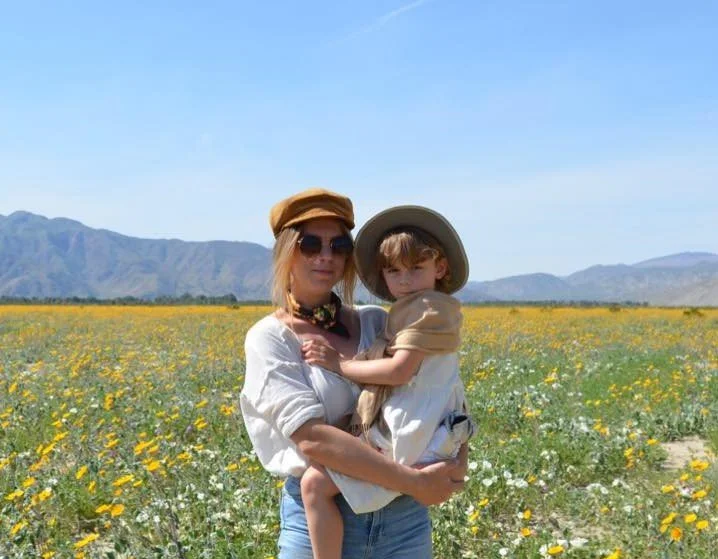
Jenafer Vespucci
Hello! My name is Jenafer Vespucci. I am currently working as a secondary English, Ethnic Studies, and music educator at Mark Twain High School. I have been teaching across disciplines as a secondary and post-secondary educator for 20 years. I was drawn to the Ethnic Studies Oral History Collective (ESOHC) because I wanted to incorporate stories, ancestral knowledge, and histories that reflect the experiences of my students. Equipped with this knowledge, students can move beyond the classroom to engage in social action in their lives and communities. In my work with ESOHC, I have had the honor to work alongside and learn from my brilliant colleagues, scholars, and professors to create curricular resources that embody the tenets of Ethnic Studies. The dynamic work of this collective has illuminated the importance of oral histories as learning tools and the power of their application in the classroom.
-

Debra Rachel Villegas
Hello! My name is Debra Rachel Villegas and I am completing my 27th school year as an Educator with San Diego Unified School District (SDUSD). Currently, I am an Academic & Career Advisor with Adult Education at Lincoln HSDP. That means I have the wonderful opportunity to assist adults, ages 18 and older to earn their high school diplomas. Because our school boundaries are so vast, I have the privilege to work with adults from all over Southern California. As well, I am on Ethnic Studies Advisory Committee for SDUSD where we have the opportunity to advise the district on how to implement Ethnic Studies across our district.
I get to practice my Ethnic Studies lessons and expertise at an after school club working with school-age students grades 3-8 at Audubon School UTK-8 located in the Skyline/Lomita neighborhoods. I want my students to understand why oral histories are important; we have to know who we are as a community. I want to teach my students how we can learn about the world around us just by listening to one another and how the 5 S’s are present in our lives when living our life in the spirit of In Lak’ech.
As a member of the Collective, I have learned so much about myself and my colleagues as humans and I value each and everyone of them. Because of them, I am now understanding why I do the things I do and how my traumas and celebrations have created the human I am today.
-

Lanae Wangler
My name is Lanae Wangler, and I am in my 24th year as an English/humanities teacher with San Diego Unified School District. I joined the ESOHEC because I wanted to bring counter-narratives into my classroom. I love the approach of "Self and Stories," where we first look at the relevance and importance of our own identities and stories, and then reading about those components in others. I want include diverse voices and stories into my classroom that students would resonate with. Through my work in the ESOHEC, I have gained a vast amount of knowledge about resourceful books, teaching strategies (such as the 4 i's or 5 S's), and awareness to the systems and structures that exist in our communities and country. I very much appreciate the vast knowledge that the professors and educators brought to this group. It truly changed my life personally and professionally, because as I began to claim my own identity with pride instead of shame, I learned to value the identities of my students in a much deeper way. I have always loved my profession, and through this experience, I love teaching more than ever - even after 24 years!
-

Curriculum-Thinking
-

Lesson Plans
-

Student Facing Resources
Tell us your story.
We’d love to hear from you.
Meet our Partners
Our Members are Affiliated with:
UCSD, SDSU, USD, SUHSD, GUHSD, SDUSD, and High Tech High Chula Vista






